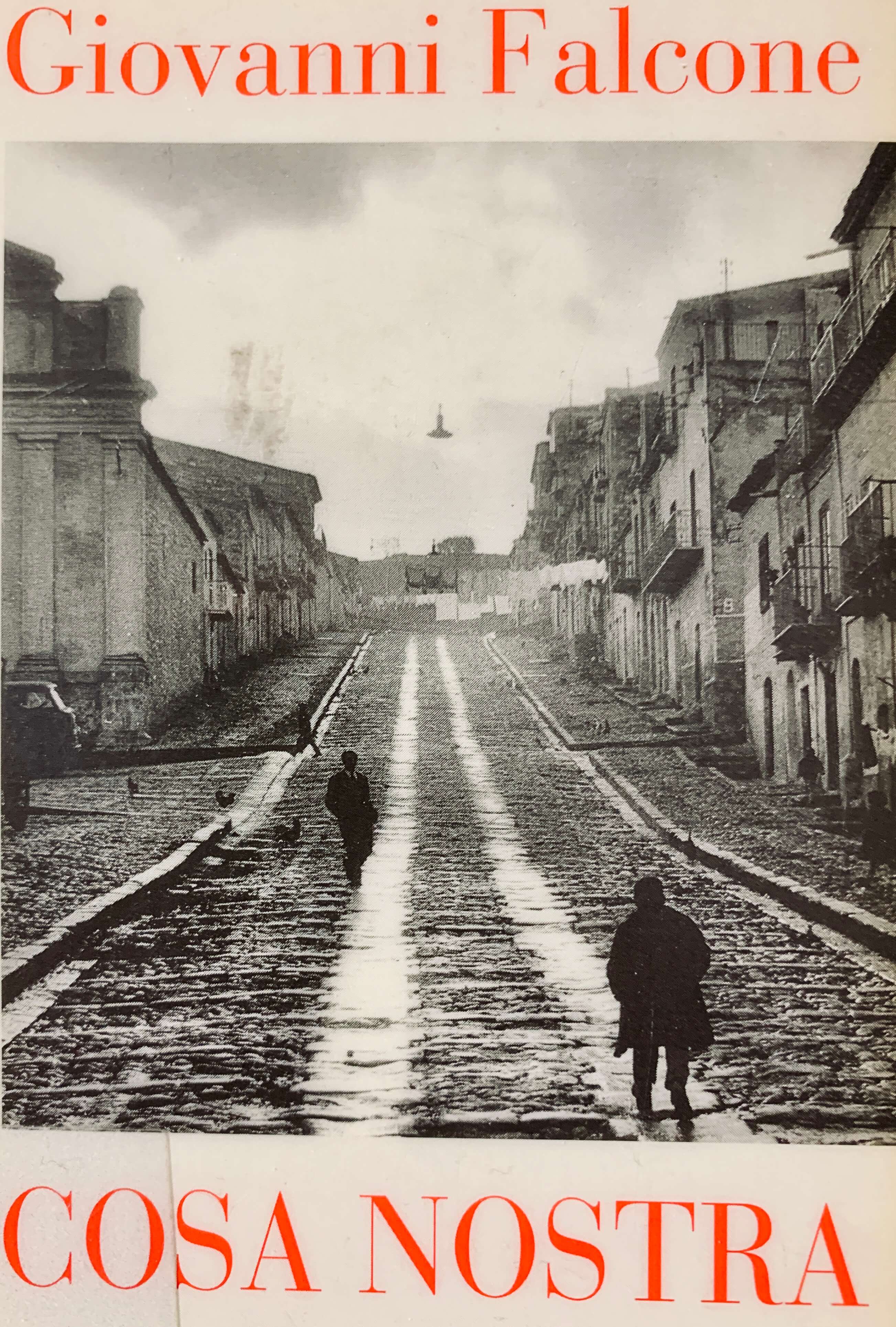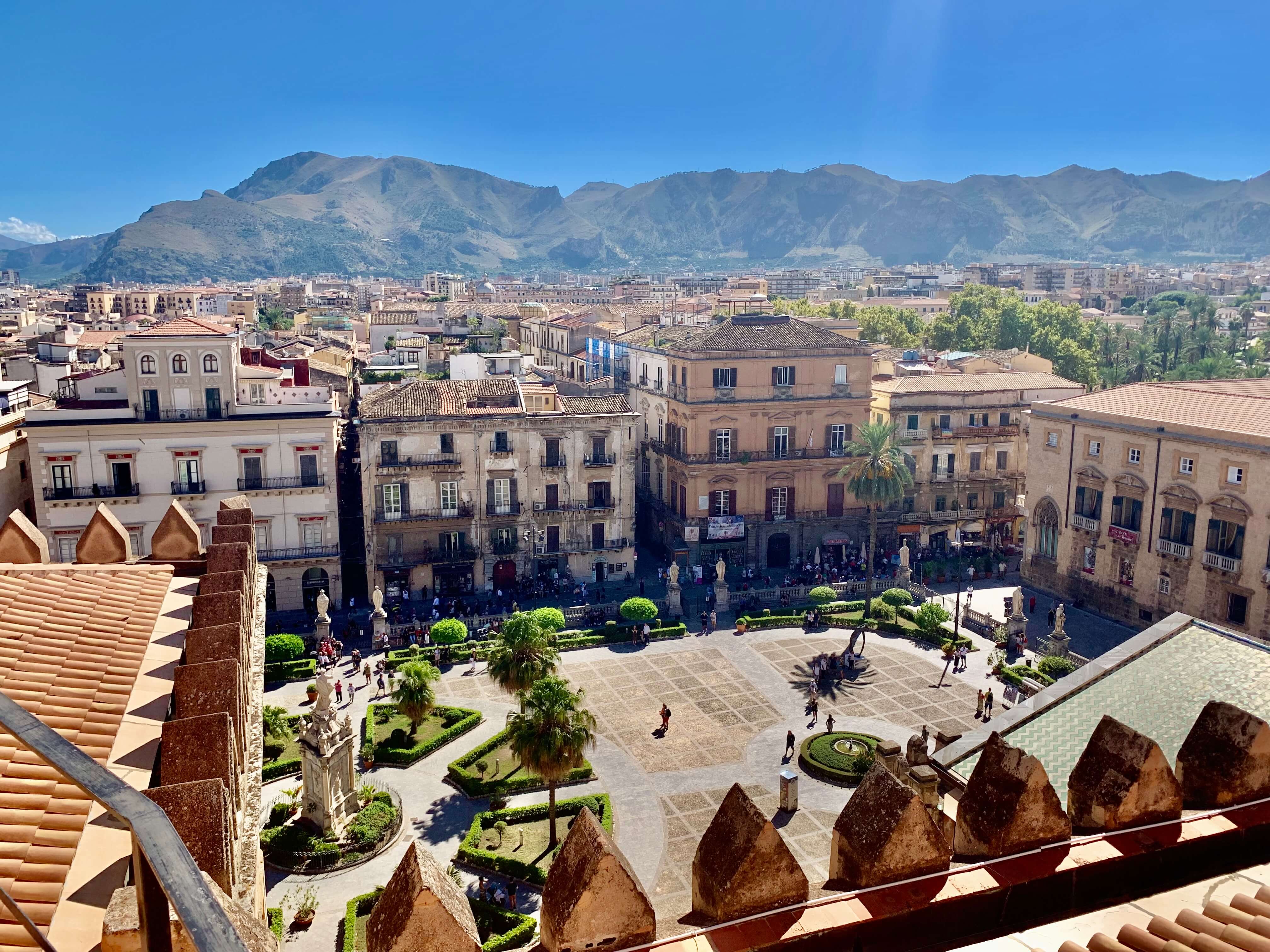- Home
- Sicilian Culture
- Andrea Camilleri
Andrea Camilleri: The creator of Inspector montalbano
Andrea Camilleri (1925-2019) is best known for his Montalbano detective stories. All his books share a humorous insight, complemented by characters created with a keen eye. They are all set on the island of Sicily.
With his masterful storytelling and vivid descriptions, Camilleri weaves a rich tapestry of complex characters, crime, and culture that keeps the reader nailed to the page.
The protagonist of the Montalbano series is Salvo Montalbano, an intelligent but unconventional detective who solves crimes in the fictional Sicilian coastal town of Vigata. Montalbano's sharp wit and unwavering dedication follow him as he navigates a landscape of corruption, mystery, and moral ambiguity.
With a deep understanding of Sicilian culture, Camilleri paints a vivid picture of everyday life, intertwining local traditions, politics, and gastronomy into his narratives. In each story, Camilleri reveals - through his characters - the complexities and contradictions of human nature.
From his unforgettable characters to the evocative settings, this article will highlight the elements that have made the Inspector Montalbano series a timeless classic in crime fiction.
 Andrea Camilleri. (Photo by Antonio Pignato)
Andrea Camilleri. (Photo by Antonio Pignato)The Complex Characters of Inspector Montalbano
In Andrea Camilleri's books, characters come to life on the pages. In the Montalbano series, the protagonist, Salvo Montalbano, is a brilliant detective with a sharp mind—at least regarding crimes—but that doesn't make it any easier for him to navigate the details of his personal life.
Therefore, the starting point is the same as in many other detective stories. What distinguishes Montalbano books from many others is the setting: the people and society of Sicily, often operating in the grey areas of morality.
Salvo Montalbano is just the right for this kind of work. He seeks justice and truth in his job, often at the price of literal law. Montalbano is unafraid to bend the rules or challenge the status quo while navigating the tricky waters of Sicilian society.
Aside from Montalbano, Camilleri introduces us to many memorable supporting characters who - in their own ways - add depth and complexity to the stories. From Montalbano's womanizing deputy, Mimì Augello, to his strict boss, Chief Inspector Bonetti-Alderighi, each character brings unique traits and quirks to the puzzle.
Camilleri's skill lies in his ability to create characters that feel real and relatable. Each character is flawed, with their strengths and weaknesses, making them all the more human. Whether it's the sympathetic but simple-minded Catarella or strong-willed Livia - Montalbano's love interest - each character is carefully crafted and adds humanistic depth to the narrative.
Through the interactions of these characters, we get a glimpse into the complexities of human relationships and the intricacies of Sicilian society.
 Andrea Camilleri, drawn by Ser Stelitano.
Andrea Camilleri, drawn by Ser Stelitano.The Intricate Plots and Storytelling Techniques in Camilleri's Novels
Camilleri's novels are a masterclass in crime fiction. They combine suspense, mystery, and unexpected twists, leaving readers guessing until the end.
The plots are complex and multi-layered. Each novel is meticulously crafted. A central crime—or two—catalyzes Montalbano's investigation. But what sets Camilleri apart is his knack for weaving multiple subplots together, creating a rich tapestry of interconnected storylines.
Camilleri's storytelling is nonlinear. Many plots and subplots starting from different points slowly intertwine, adding elements of surprise and unpredictability to the narrative.
In this sense, it is considerate to the reader that the characters are somewhat caricatured. Their partial predictability and repetitive mannerisms from book to book make for a more effortless reading experience with complex plot twists and turns.
Camilleri is also a master in vivid descriptions and sensory details. From the sights and sounds of the city streets to the mouthwatering descriptions of Sicilian cuisine, Camilleri brings the world of Montalbano to life, immersing readers in Sicily's sights, sounds, and flavors.
The Social and Political Commentary in Camilleri's Writing
Camilleri's writing is entertaining and serves as a social and political commentary on contemporary Italy. Through Montalbano's investigations, Camilleri sheds light on the corruption and inefficiency that is all too familiar in Italian society. He explores themes of power, injustice, and the struggle for truth, providing readers with thoughts on the state of things.
For me at least, Camilleri's books are also a kind of therapy. They help to see that things are not always as two-sided as expected. The Sicilian way of seeing different shades of grey instead of just black and white also has a brighter side. In fact, the reality rarely is as clear-cut as we would like it to be.
Camilleri is also not afraid to tackle current issues. For example, in "The Shape of Water," he delves into immigration issues and the exploitation of undocumented workers. He exposes these vulnerable individuals' harsh reality and the indifference of those in power. This earned him anger from supporters of the Italian far-right.
Camilleri's writing also tackles the complexities of Sicilian politics. In "The Terracotta Dog," Montalbano uncovers a conspiracy that reaches the highest levels of government. The novel explores the intertwining relationships between politicians, business people, and the Mafia, highlighting the blurred lines between legality and criminality.
Otherwise, only a small part is reserved for the Mafia in Camiller's books. He said this was not out of fear but because he didn't want people to start glorifying the Mafia's life—as had happened with The Godfather.
 Duomo of Ragusa is one of the places that is often seen in the Montalbano TV series.
Duomo of Ragusa is one of the places that is often seen in the Montalbano TV series.The Impact of the Montalbano Series
Camilleri's books have become bestsellers worldwide, captivating readers from all walks of life. They have sold more than 30 million copies worldwide and have been translated into more than thirty languages. His vivid descriptions of Sicilian landscapes, architecture, and cuisine have sparked interest in the island's beauty and charm—much like the second season of The White Lotus lately did.
Of those two, for the view of the Sicilian way of life and popular character, I'd suggest turning to Camilleri.
A TV series based on the Montalbano books has been broadcast in nearly seventy countries.
The Legacy of Andrea Camilleri: A Literary Icon
Andrea Camilleri had written several historical novels when, at almost 70, he wrote his first Montalbano novel, The Shape of Water. Camilleri died at the age of 93. In these last two decades of his life, he wrote 28 Montalbano books and gained status as a literary icon.
His Inspector Montalbano series has garnered critical acclaim and a worldwide devoted fan base. Camilleri's ability to weave intricate mysteries while exploring profound themes has earned him comparisons to literary greats such as Agatha Christie and Raymond Chandler.
Beyond his writing, Camilleri's legacy also extends to his commitment to social justice and political activism. Throughout his career, Camilleri used his platform to speak out against corruption and injustice, advocating for a more equitable society.
 Andrea Camilleri is portrayed in "The Wall of Legality" in Palermo, amongst other fighters for social justice.
Andrea Camilleri is portrayed in "The Wall of Legality" in Palermo, amongst other fighters for social justice.Conclusion: The Enduring Appeal of Andrea Camilleri's Literature
Andrea Camilleri's Inspector Montalbano series has left an indelible mark on the world of crime fiction. His masterful storytelling, rich cultural portrayals, and thought-provoking social commentary have captivated readers worldwide.
Camilleri's legacy extends beyond his writing. His influence on Italian literature and culture and his commitment to social justice have solidified his status as a literary icon. The enduring appeal of the Inspector Montalbano series lies in its ability to transport readers to Sicily's idyllic yet enigmatic world while simultaneously challenging them to confront the realities of their own societies.
As readers continue to be enthralled by Andrea Camilleri's literary work, his Inspector Montalbano series remains a timeless classic in crime fiction.
(This page last edited: January 17, 2025)
Recent Articles
-
Sicilian Food - Rich Flavors, Endless Passion
Apr 09, 25 09:54 AM
All you need to know about Sicilian food, its ingredients and history. -
Things to Do in Palermo - Tips for a Perfect Holiday
Apr 05, 25 04:27 AM
Things to Do in Palermo - From historic landmarks to delicious food, this guide has it all. -
The Story of Tommaso Buscetta: From Mafia Boss to Key Witness
Mar 30, 25 05:12 AM
Tommaso Buscetta built Sicilian Mafia into a global empire - which he then destroyed.
Follow MANY FACES OF SICILY on Facebook, Instagram, Bluesky & Pinterest
Contact: vesa@manyfacesofsicily.com





